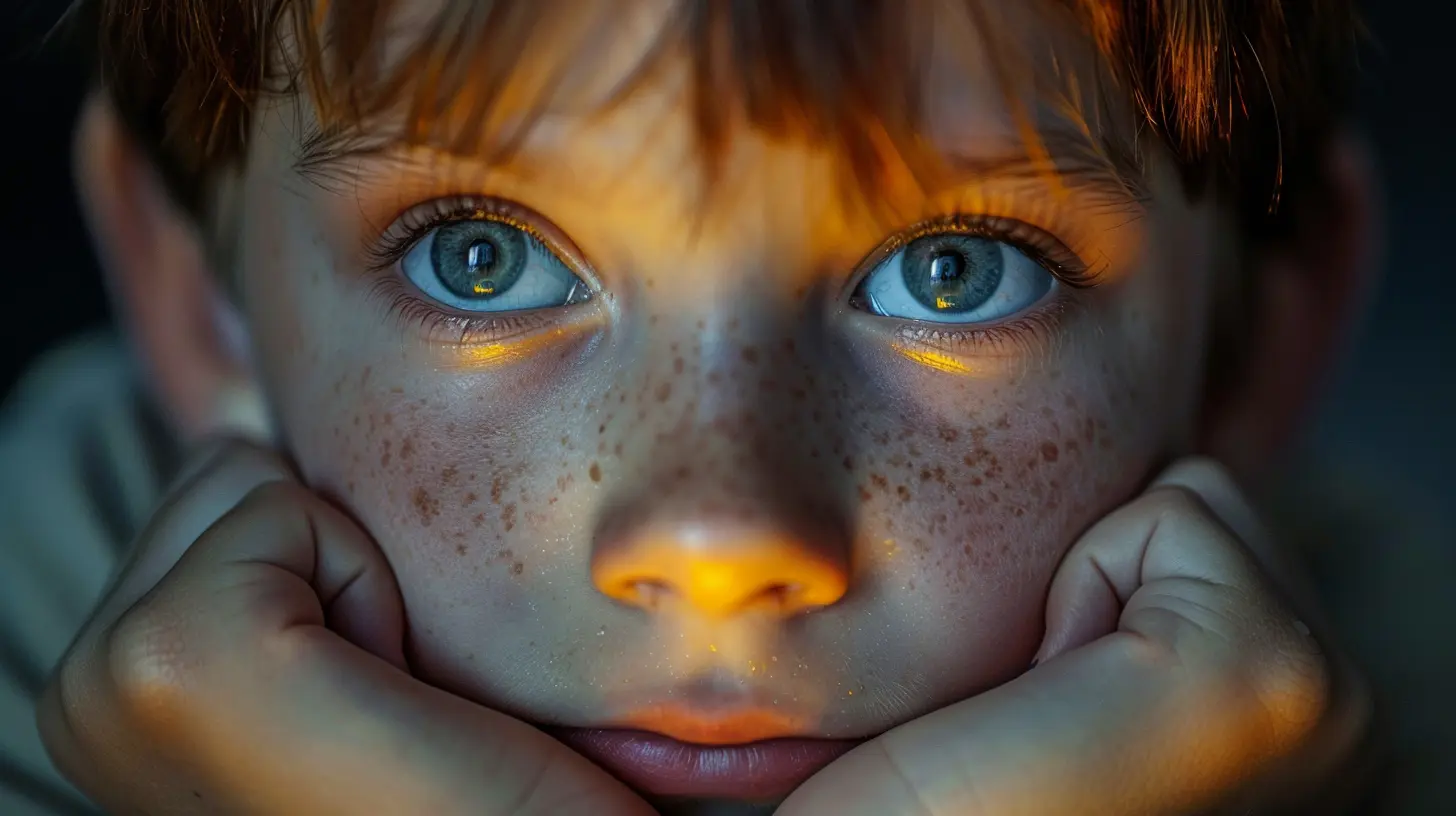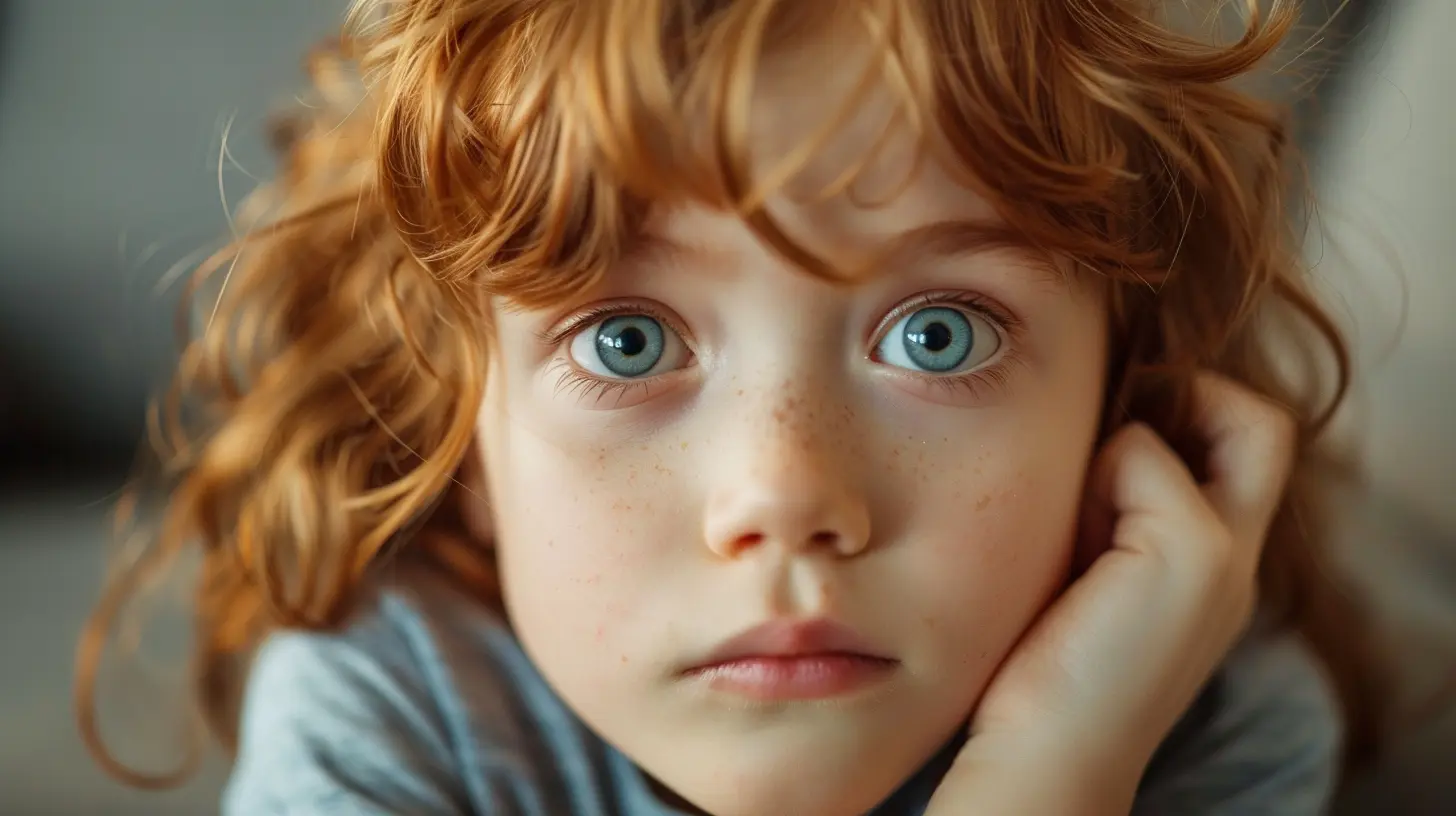How to Recognize Signs of Anxiety in Children
1 May 2025
Anxiety isn't just something adults deal with—it affects children too. But unlike adults, kids often struggle to express how they feel. Instead of saying, "I'm anxious," they might act out, complain of tummy aches, or withdraw completely. If you're a parent or caregiver, recognizing the signs of anxiety in children early can make all the difference in helping them manage it.
So, how can you tell if your child is struggling with anxiety? Let’s break it down.

Understanding Anxiety in Children
Anxiety is a normal part of childhood. Everyone feels nervous from time to time—before a big test, during a new experience, or when facing a fear. But when anxiety becomes constant, overwhelming, or interferes with daily life, it’s a red flag.Children may not always have the words to express their anxiety, so it often shows up in their behavior. They might avoid certain situations, develop unusual habits, or experience physical symptoms without a clear medical cause.
Common Causes of Anxiety in Kids
Before we dive into recognizing anxiety, it's helpful to understand what might be triggering it. Some common triggers include:- Changes in Routine – Moving to a new school, a new sibling, or changes in family dynamics (like divorce) can create stress.
- Academic Pressure – The fear of failing or not meeting expectations can be overwhelming.
- Social Challenges – Making friends, dealing with bullying, or feeling excluded can be a major source of anxiety.
- Separation Anxiety – Younger children especially may struggle with being away from parents.
- Traumatic Events – Experiences like illness, accidents, or even hearing about bad things happening in the world can make kids anxious.
Now, let’s get into the specific signs you should watch for.

How to Spot Anxiety in Children
Since kids often express anxiety differently from adults, it’s important to be aware of both emotional and physical signs.1. Physical Symptoms That Don’t Have a Clear Cause
One of the biggest giveaways of anxiety in children is physical complaints that don’t seem to have an obvious medical reason. Common symptoms include:- Frequent stomachaches or headaches
- Nausea or dizziness
- Muscle tension
- Restlessness or feeling on edge
- Trouble sleeping (nightmares, difficulty falling asleep, waking up often)
- Sweating or trembling
- Racing heartbeat
If your child frequently complains about feeling sick but doctors find no medical reason, anxiety could be the culprit.
2. Excessive Worrying & Overthinking
Does your child seem to worry all the time? Do they go over the same problems repeatedly, fearing the worst will happen?Children with anxiety often fixate on things like:
- School performance – They might constantly worry about failing tests or not being "good enough."
- Safety concerns – Some kids worry obsessively about their own safety or the safety of loved ones.
- Social interactions – They may overanalyze conversations, fearing they said something wrong or embarrassed themselves.
A little worrying is normal, but if these thoughts seem to consume your child’s life, it might be anxiety.
3. Avoidance Behavior
Avoidance is a major red flag for anxiety. If your child is constantly making excuses to avoid certain situations, ask yourself why.Common avoidance behaviors include:
- Refusing to go to school
- Avoiding social interactions (birthday parties, playdates, group activities)
- Making excuses to skip activities they once enjoyed
- Becoming clingy and refusing to be left alone
Anxious kids avoid situations that make them uncomfortable because they fear failure, embarrassment, or distress.
4. Sudden Mood Swings or Increased Irritability
Does your child lash out over small things? Anxiety can make kids more irritable, short-tempered, or overly sensitive.You might notice:
- Frequent outbursts
- Crying easily
- Snapping at family members or friends
- Frustration over minor setbacks
Since kids don’t always recognize their emotions, they might express anxiety through anger or defiance rather than verbalizing their fears.
5. Lack of Focus & Trouble Concentrating
Many anxious children struggle to concentrate. Their minds are so busy worrying that staying focused on schoolwork or conversations becomes difficult.Symptoms may include:
- Daydreaming or zoning out frequently
- Trouble completing assignments
- Forgetting instructions
- Appearing absent-minded or overwhelmed
If your child used to be attentive but now seems distracted all the time, anxiety may be interfering with their ability to focus.
6. Sleep Problems
Anxiety doesn’t take a break at bedtime. Many children with anxiety struggle to fall asleep, wake up frequently, or have nightmares.Common bedtime struggles include:
- Difficulty falling asleep – Their mind races with worries, making it hard to settle down.
- Frequent nightmares – Anxious kids may have bad dreams that wake them up.
- Waking up tired – Anxiety often leads to poor sleep quality, leaving kids exhausted.
If your child suddenly dreads bedtime or complains about constantly feeling tired, anxiety could be disrupting their sleep.
7. Repetitive Behaviors & Tics
Some anxious children develop habits that help them cope with their nerves. This can include:- Nail-biting
- Skin-picking
- Hair-twirling or pulling
- Tapping fingers or feet
- Repetitive questioning for reassurance
These behaviors often serve as an unconscious way to self-soothe. If they become excessive, they might indicate anxiety.
8. Clinginess & Fear of Being Alone
Younger children with anxiety often become overly attached to parents or caregivers. They may:- Refuse to sleep alone
- Panic when a parent leaves, even for short periods
- Constantly seek reassurance ("Are you okay?" "Do you still love me?")
- Struggle to play independently
While it’s normal for kids to go through clingy phases, extreme separation anxiety could point to an underlying issue.

What to Do If You Think Your Child Has Anxiety
If you recognize these signs in your child, don’t panic. Anxiety is common, and there are many ways to help your child manage it.1. Talk to Your Child
Encourage open conversations about feelings. Instead of asking generic questions like, "Are you okay?" try:- “I’ve noticed you seem worried a lot. Do you want to talk about it?”
- “Your tummy hurts a lot before school. Do you feel nervous about something?”
Let them know it’s okay to be anxious and that you’re there to help.
2. Validate Their Feelings
Avoid phrases like "There's nothing to worry about." Instead, acknowledge their fears and offer reassurance:- “I understand that school feels scary sometimes. Let’s figure out how we can make it easier."
3. Teach Coping Skills
Kids won't just "grow out" of anxiety—they need healthy ways to manage it. Some helpful strategies include:- Deep breathing exercises
- Journaling feelings
- Practicing mindfulness
- Using calming techniques (like listening to music or squeezing a stress ball)
4. Seek Professional Help If Needed
If anxiety is severely impacting your child’s daily life, a therapist or counselor can help. Cognitive Behavioral Therapy (CBT) is especially effective for childhood anxiety.5. Create a Safe, Supportive Environment
Reduce unnecessary stress where possible. Make home life a place of encouragement, understanding, and patience.
Final Thoughts
Recognizing anxiety in children isn’t always easy, but being aware of the signs can help you support them in the best way possible. If your child constantly worries, avoids certain situations, or complains of unexplained physical symptoms, anxiety could be the root cause. The good news? With the right guidance and support, children can learn to manage their anxiety and thrive.all images in this post were generated using AI tools
Category:
Childrens HealthAuthor:

Tiffany Foster
Discussion
rate this article
4 comments
Hailey Navarro
Understanding anxiety in children is crucial. Look for behavioral changes, withdrawal, and physical symptoms. Early recognition aids in effective support and intervention, fostering emotional well-being.
May 16, 2025 at 2:49 PM

Tiffany Foster
Thank you for highlighting the importance of early recognition in addressing anxiety in children. Your insights emphasize how crucial it is to be attentive to behavioral and physical signs for effective support.
Zina Benton
Understanding is the first step forward!
May 14, 2025 at 2:21 AM

Tiffany Foster
Absolutely! Understanding is crucial for identifying and supporting children with anxiety.
Karen Martin
In shadows where young hearts silently dwell, Anxiety whispers, a story to tell. With kindness and patience, let love be the guide, For in understanding, their worries subside.
May 10, 2025 at 3:38 PM

Tiffany Foster
Thank you for your beautiful words! Recognizing anxiety in children is crucial, and your poetic perspective highlights the importance of kindness and understanding in supporting them.
Zella McInerney
This article effectively highlights critical indicators of anxiety in children, emphasizing the importance of early recognition. Understanding these signs can foster timely intervention and support for affected children.
May 4, 2025 at 2:21 PM

Tiffany Foster
Thank you for your thoughtful comment! I'm glad you found the article helpful in highlighting the importance of early recognition and support for children facing anxiety.



